British High Commission receives Mozambican students returned from Chevening scholarships
There are days when the only thing to share in the open is hunger
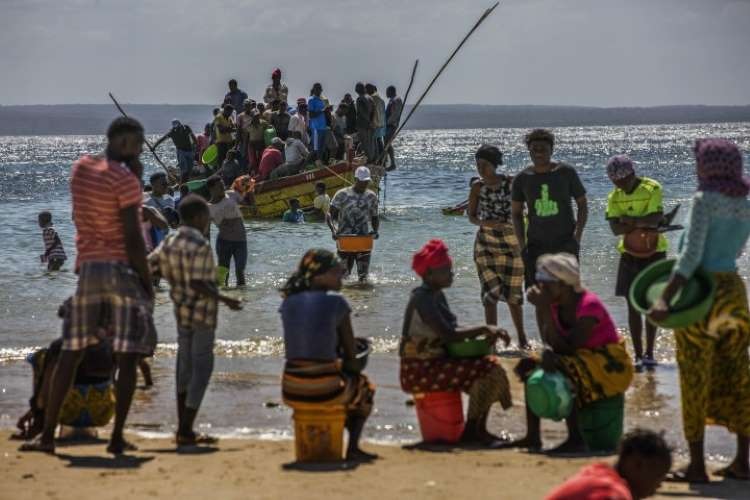
Photo: Lusa
Abubacar Assan has improvised a tent with two long sticks leaning against a wall, over which he has placed strips plastic found in the streets.
He sleeps in the open, on the ground, in the back yard of his brother-in-law’s overcrowded house, where the makeshift tent protects him on winter nights in the Paquitequete neighbourhood in Pemba, one of the points of arrival for those displaced by the armed violence in Cabo Delgado, in the north of Mozambique.
Abubacar, 44, a handyman, lived with his wife and six children in Quissanga, a coastal village about 100 kilometres north of the provincial capital, Pemba, until an armed group attacked on the morning of 25 March.
That night, he recalls, the sound of gunfire was followed by the panicked population of the village fleeing in the darkness.
“We were chased by three” of the invaders, says Abubacar – three armed figures from whom they escaped.
He and his family spent three days hiding in the mangrove without food before they managed to reach Quirimba Island, where other displaced people also found refuge, they too without food or sleep.
The nights became a permanent state of fear, reports Abubacar, always fearing the next attack.
After 20 days, he joined one of the groups that arrived by boat at Paquitequete beach in search of food and solidarity.
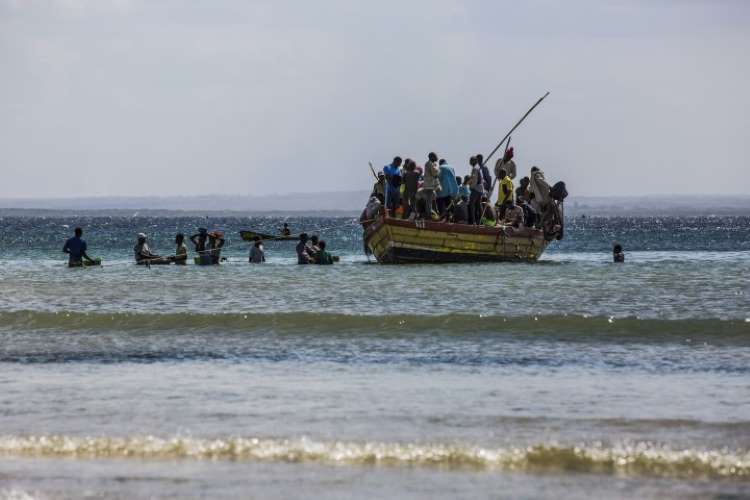
The beach there is invariably crowded with seemingly fragile vessels overcrowded with passengers and cargo heading for all points along the coast – and so it is today. Another full vessel comes into view, carrying everything and everyone, battling a strong wind.
Today there are no displaced people arriving, but the Paquitequete neighbourhood is full. The streets, one after another, are full of families hosting relatives and friends who came down from the north of the province to escape the armed attacks that have already killed at least a thousand in two-and-a-half years, and displaced 250,000.
Everything intensified this year, Atanásio Assan says, because until now “we had a good life. It was them, the family in Quissanga, who sent [agricultural] products here. Now it is the opposite: we are the ones who have to help”.
Atanásio Assan, 38, the brother-in-law who has accommodated Abubacar, does odd jobs as a bricklayer in the Expansão neighbourhood, on the other end of Pemba, and is the only one who has any income to buy some food in the small house where, suddenly, 22 people have taken up residence.
“Enough…? It is not. But you can hang on. It’s not always enough. There are days when we have nothing to eat, there is nothing to cook,” he says, with a long sigh and sadness in his eyes.
“We hang on anyway. We are hungry. Do what? It’s sad.” In front of him is a patio mostly full of children, at least one of them a baby and others with only two or three years old.
Today there is a little octopus on the stove, but it is a rare day in a routine of corn flour, rice and spaghetti.
The scenario is repeated all over the Paquitequete neighbourhood and elsewhere, says Nassurulahe Dulá, provincial leader of the Islamic Congress of Mozambique (CIMO).
“Some eat porridge in the morning and only have lunch at 5:00 pm so as to skip dinner,” while others “eat one meal a day”, he says, describing the anguish of the food never being enough, no matter how much help one gets, such is the tidal wave of displaced.
“The Islamic community and humanitarian action have been mobilised, but it is not enough,” he details.
“The need that exists with the displaced is for food, food. They left as they were, with the clothes on their backs,” abandoning the land where they grew food.
The tidal wave continues. “I was informed a few days ago of the arrival of a family of 27 people from Mocímboa da Praia who are in a hut where not even five people can sleep.”
This is the scenario at Atanásio’s house, which accommodates the family of Abubacar and other displaced people, sleeping where they can, inside the house and in the yard perched on the Paquitequete fishermen’s beach.
Abubacar wraps the plastic of the tent around himself because of the wind, and the children laugh. He laughs along.
“Sometimes I forget what has happened and can manage a little smile. Other times, I get sick in my head when I think about the life we had,” – in peace, in Quissanga.
Night begins to fall; in the Pemba winter, the sun goes down at about 5:00 p.m., and soon all movement in the Paquitequete neighbourhood ceases.
“You don’t go anywhere at night,” Atanásio says: the authorities suspect that, among the waves of displaced persons there are members of the insurgency that is plaguing the region, and anyone caught abroad at night risks being detained for investigation.
“Circulating is only until 8 p.m.. Anything after that is suspicious,” he adds, without demure. There have to be restrictions, he says, to “avoid these problems” that have been turning Cabo Delgado inside out since 2017.
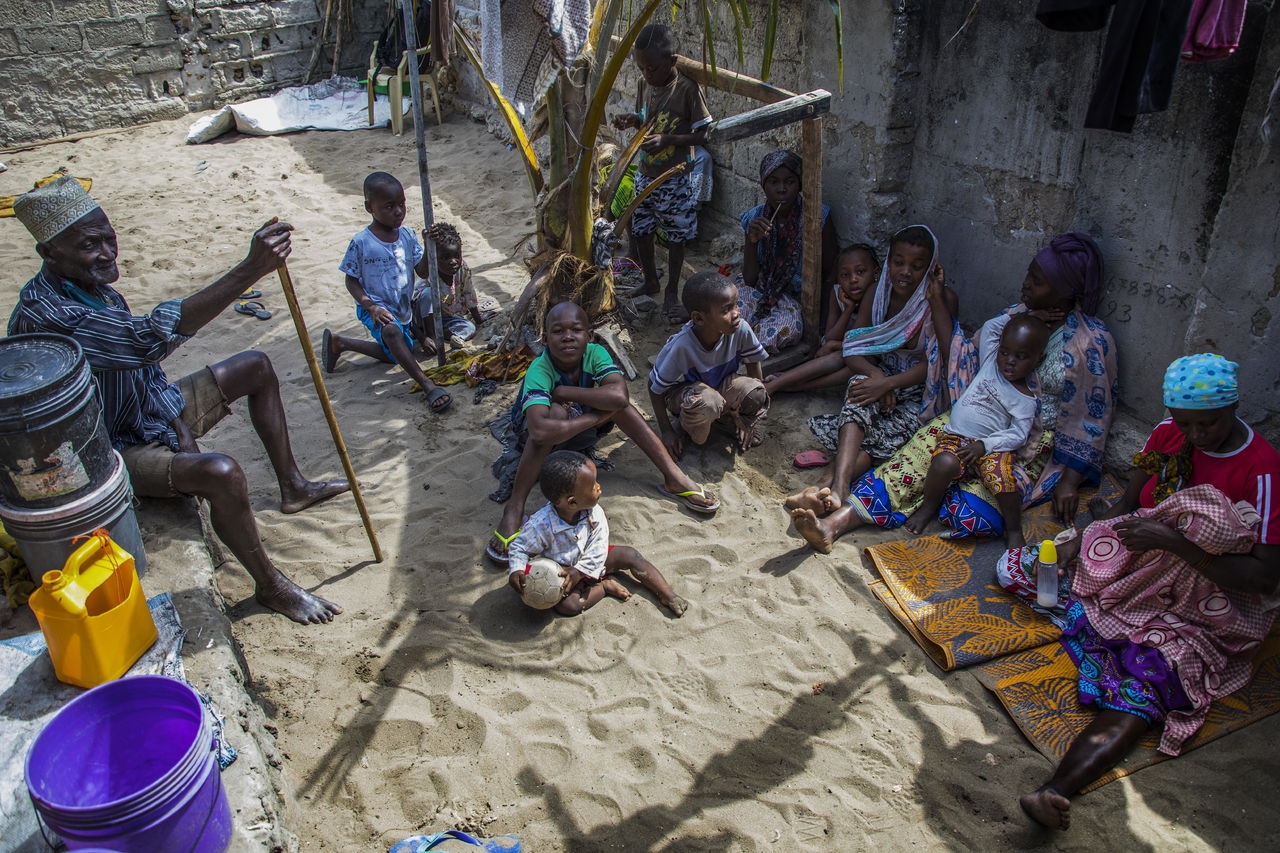
Some of the attacks have been claimed, for about a year now, by the Islamic State jihadist group, and the terrorist threat is recognized inside and outside the country, with rebel groups having occupied important villages in Cabo Delgado – more than 100 kilometres from the capital, Pemba – for days in a row before being forced out by the Mozambican Defence and Security Forces.
With the already-impoverished host communities, it is estimated that there are 712,000 people in need of help in the province.



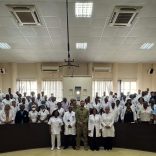

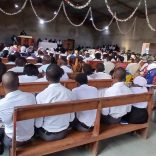







Leave a Reply
Be the First to Comment!
You must be logged in to post a comment.
You must be logged in to post a comment.